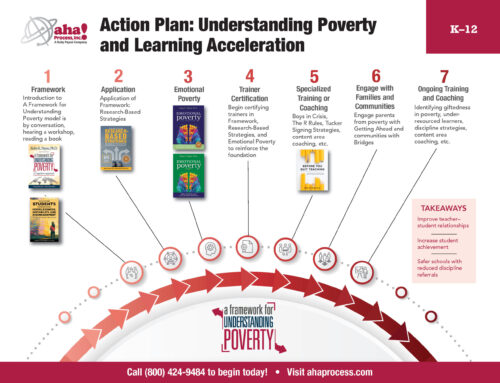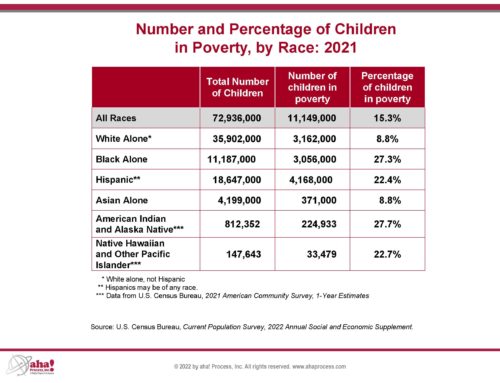 There are many causes of poverty, one of which is poor mental health. My dad, for example, earned Purple Hearts for injuries he sustained when he participated in the initial wave of the WWII D-Day invasion of Omaha Beach and subsequent battles, but his emotional wounds were more serious than the physical ones—and, unfortunately, they were never treated.
There are many causes of poverty, one of which is poor mental health. My dad, for example, earned Purple Hearts for injuries he sustained when he participated in the initial wave of the WWII D-Day invasion of Omaha Beach and subsequent battles, but his emotional wounds were more serious than the physical ones—and, unfortunately, they were never treated.
The impact of Dad’s emotional challenges frequently manifested at unexpected times and in unusual ways. For example, Dad refused to cross bridges because, in his words, “Enemies bomb bridges first.” My childhood was filled with “bridge episodes.” A particularly memorable one occurred during one of Uncle Jack’s frequent visits.
Uncle Jack and Uncle Lee, Dad’s brothers, visited regularly throughout my childhood. Typically they stayed with us for a few days or weeks, then they left again. I love when Uncle Jack visits, I told myself whenever he was there, because he laughs a lot and makes Momma and Daddy laugh, too. I don’t even mind if he takes up the whole couch or eats our food.
“Hey, Buck,” Uncle Jack said to Daddy one morning at breakfast. “I’ve been wondering if you’d ever thought about taking Ester and the kids on a vacation. Even if it’s just a one-day trip, you know they would enjoy themselves.”
“I don’t need you telling me what to do,” Daddy said. I looked down, frightened by the sound of his voice. Then he added, “I went all over the world during the war, and I tell them all about it. I don’t need to go anywhere else, and they don’t either.”
“But your family hasn’t been anywhere,” Uncle Jack said. I could tell he was scared to say those last words.
“And besides, I already have a trip planned,” Daddy announced.
I jerked my head up in surprise and gasped a big breath of air. Uncle Jack smiled. This was too good to be true. Daddy has a trip planned for us. I didn’t say a word, afraid that if I spoke I would ruin everything, and he would change his mind. Josephine, Amy, and Mom must have been thinking the same thing, because no one spoke. We all sat there and looked at Daddy.
It was Uncle Jack who broke the silence. “Great. What’s your plan, Buck?” he started eating again after asking the question.
“We’re going fishing. Tomorrow.”
Daddy is going to take us fishing! Still afraid of breaking the spell, Amy and I looked back and forth at one another and giggled quietly. Josephine gazed at Daddy from the corner of her eyes, obviously unconvinced that he was telling the truth. Momma just stared at him.
Early the next morning we all took our assigned places in the pickup truck. Daddy put the one cane pole that he owned (and that we’d have to take turns using) in the bed of the truck.
We made it as far as the street corner when Daddy stopped to talk to a neighbor. “What’s the weather forecast?” Daddy asked. “I’m taking the kids fishing and don’t want to get caught in a thunderstorm.”
“Chance of rain late this evening,” the neighbor answered. “But you don’t need to worry about that. You’ll have plenty of time to catch a big mess of fish before the rain comes. Be careful, girls. Some of those catfish in the river are bigger than you are. Don’t let them pull you in.” Mr. Ryan patted Josephine on the head as he spoke. She jerked her head away and swatted at his hands, clearly upset that he touched her.
“Where’s the best place to park by the river?” Daddy asked.
“Just on the other side of the bridge,” Mr. Ryan answered. “There’s a big clearing that’s okay to park in.”
“What about on this side of the river?” Daddy focused his attention on Mr. Ryan more closely.
“Nope. Pull-off spaces have been blocked off on this side.”
Daddy thanked him, drove to the nearest turn-around spot, made a U-turn, and drove back to the house.
“Aren’t we going fishing?” Amy and I cried while we all poured out of the truck.
“Of course not. I knew we wouldn’t,” Josephine flipped her ponytail as she walked back to the house in front of everyone.
“Why not?” I squealed.
“You heard the man. It’s going to rain, and there’s nowhere to park on this side of the river,” Daddy was walking quickly to put the cane pole away.
“So why can’t we park on the other side?” I begged.
“Because I said so. Now get quiet. Anyway, it’s going to rain. You can’t fish in the rain.” Daddy put the pole away without saying anything else. Then we all followed him inside, where he picked up his “paper bag medicine” and started to drink it.
“Momma, there’s not a cloud in the sky.” Even Josephine was disappointed. She stood at the window, looking toward the sky.
“Girls,” Momma whispered to us, “the rain isn’t the problem. The real problem is the bridge. Your daddy is afraid to cross a bridge.”
“I’m not scared to cross a bridge.” I gave whining one last try. “Why is he?”
“I’m not quite sure. Something happened on a bridge during the war that your daddy won’t talk about.”
“Why not? He talks about the war all the time,” I protested.
“He doesn’t talk about the bridge,” Momma answered sternly, and the conversation was dropped.
Dad’s emotional challenges resurfaced almost daily throughout his lifetime and made it nearly impossible for him to hold a job. They also made our world very small. Those who work with people from poverty should keep in mind that while activation of prior knowledge is important, sometimes compensating for missing prior knowledge can be equally important.
Bethanie Tucker is author of Tucker Signing Strategies for Reading and coauthor of Understanding and Engaging Under-Resourced College Students, among other titles. She is an aha! Process national consultant training on the programs she created, plus A Framework for Understanding Poverty, Research-Based Strategies, and others. Keep an eye on the aha! Process blog to find out what happens next in Tucker’s memoir series “Many Bridges to Cross.”








